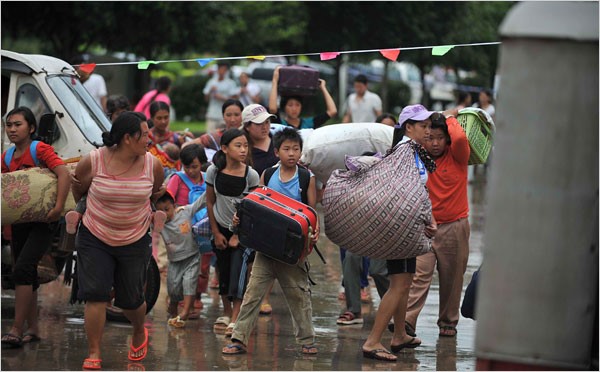
Picture source: New York Times 29 Aug 2009
On Tuesday the 11th April twenty-three people who have come to Australia from Burma/Myanmar learnt about their rights and responsibilities in health care. The session was held at the Herb Graham Centre in Mirrabooka and was supported by two interpreters. Some of the people attending speak Karen and others speak Burmese; have you ever worked with interpreters? Here are a few tips for when you do:
Speak clearly and avoid using colloquialisms or slang
Speak in sentences, not paragraphs, the interpreters can only retain so much
Allow more time, whatever you are doing will require additional time for the interpreting to take place
Speak to your audience/client, not the interpreter, they are the conduit, not the focus
If you are imparting information, ask your client/patient to feedback the information you have provided to check they have understood
The HCC provides information sessions to people who may not speak English as part of our mandate to “raise awareness of and advocate for health consumers’ rights in Western Australia”. Sadly, some who arrive here have come from countries where their human rights have been abused. Expecting people to understand they have rights in health care requires them to have both knowledge and confidence and to be proactive when engaging with health professionals. In many instances this is a ‘bridge too far’. Providing people with basic information however is a good starting point and this is what HCC is doing. HCC is also working on an online health rights quiz which will be launched in the future.
I was joined by Diana McTiernan from the Equal Opportunity Commission (EOC) who delivered information on that topic. The two areas complement and support each other and I hope to continue partnering with the EOC. The participants were very engaged in both sessions, some related experiences which concerned them in the areas of employment and healthcare. Evaluations from the session show that people gained knowledge and confidence and that they found the information useful and will share with friends and family. Rather than written evaluations I use ‘faces’ and a small amount of writing that is easy to interpret, people can tick the appropriate ‘face’ e.g.
“After this information session I am more confident about attending medical appointments”
I would like to thank Say Paw from the Metropolitan Migrant Resource Centre at Mirrabooka for inviting me to present and look forward to future sessions and opportunities to work together.
Louise Ford – Manager – Culture and Diversity Program






